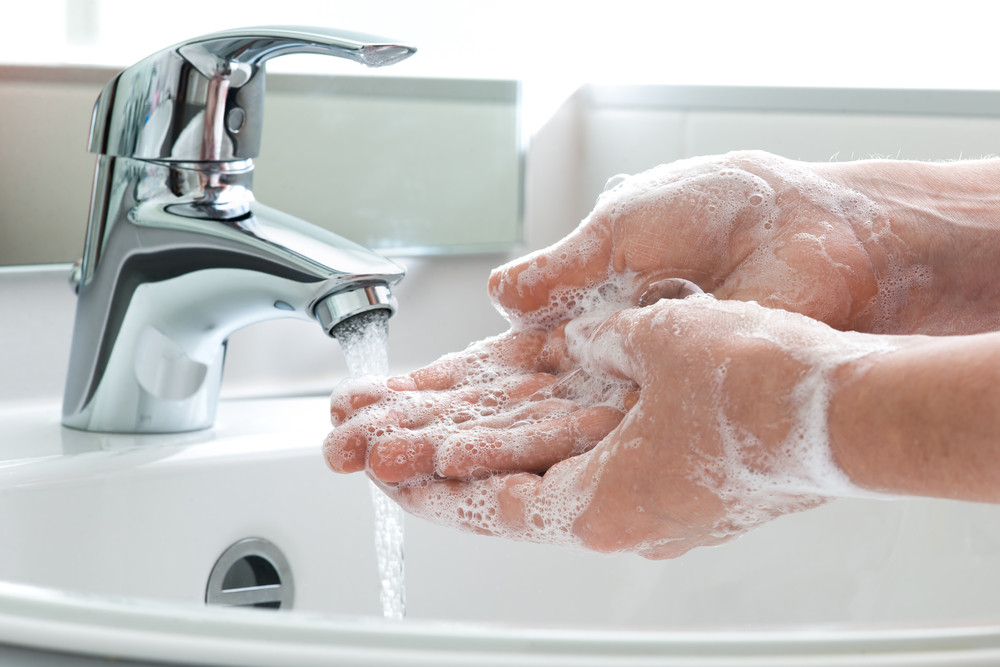Popular Reads
Top Results
Can't find what you're looking for?
View all search resultsPopular Reads
Top Results
Can't find what you're looking for?
View all search resultsWash your hands after touching these seven things
According to the Mayo Clinic, washing your hands limits the transfer of bacteria, viruses and other germs.
Change text size
Gift Premium Articles
to Anyone
Good hygiene along with the habit of washing your hands are essential to reduce the risk of common infections.
According to the Mayo Clinic, washing your hands limits the transfer of bacteria, viruses and other germs. The Centers for Disease Control and Prevention in Atlanta, the United States, recommends rubbing your hands together with soap and clean water or an alcohol-based hand sanitizer, as diseases can be spread simply by not washing your hands.
Although the following things may seem harmless, it is highly recommended that you wash your hands after touching them, as compiled by Reader´s Digest.
1. Money
When paying with banknotes and coins, pathogens like E. coli and salmonella can be transferred as you never know who has touched the money before. Make sure you always give your hands a good scrub after handling cash to avoid bacterial contamination.
2. Handrails, handles or doorknobs
Buses, trains and any other forms of public transportation are a great source of germs since many people touch the same surfaces on handrails, escalators or bathroom door handles.
Dermatologist Katy Burris recommends washing your hands if you touch one of these public surfaces to limit the spread of bacteria and viruses.
3. Restaurant menus
Even though a restaurant may seem clean, it can be quite germ-ridden. Researchers from the University of Arizona found that a menu can contain up to 185,000 bacterial organisms due to contact with multiple people. Always wash your hands after touching the menu, especially before enjoying your meal.
Read also: Washing your hands often enough may help prevent cervical cancer
4. Animals
Physician Nesochi Okeke-Igbokwe suggests hand washing after coming into contact with an animal. “Animals may carry various diseases. And because pets are generally thought of as family friendly, hand washing is sometimes overlooked,” she said.
5. Public touchscreens
Public touchscreens attract germs since they are located in public places and are constantly touched by many people.
Kiosk machines in airports or public transportation locations are one of the worst offenders, according to Burris. “Germs are everywhere, and some places may harbor more than you may realize,” she said, adding that simple washing with soap and water will reduce transmission of these pathogens.
6. Kitchen sponges
Preparing food in the kitchen requires a hygienic environment and clean hands. Any kitchen utensils, textiles and even the food itself can be full of germs.
Cutting boards, kitchen towels and sponges are especially affected, as a study found 326 different species of bacteria living on used kitchen sponges. Burris suggested washing your hands before preparing a meal and after handling raw meat. Replace your sponge from time to time.
7. Surfaces at the airport
According to the Federal Aviation Administration, around 2.6 million airline passengers travel every day, making airports homes to thousands of kinds of bacteria.
More shared public surfaces and more people touching them result in more germs. Always wash your hands after touching doorknobs, water fountains, kiosk screens or plastic tubs. Trays in the airport security line can also be contaminated as people throw their dirty shoes and bags in it, according to a research study published in BMC Infectious Diseases. (sop/wng)











